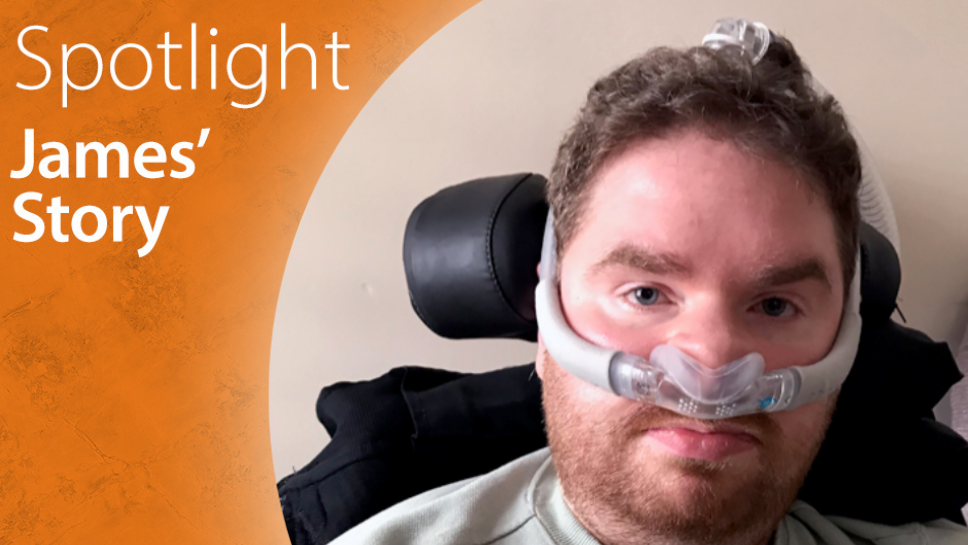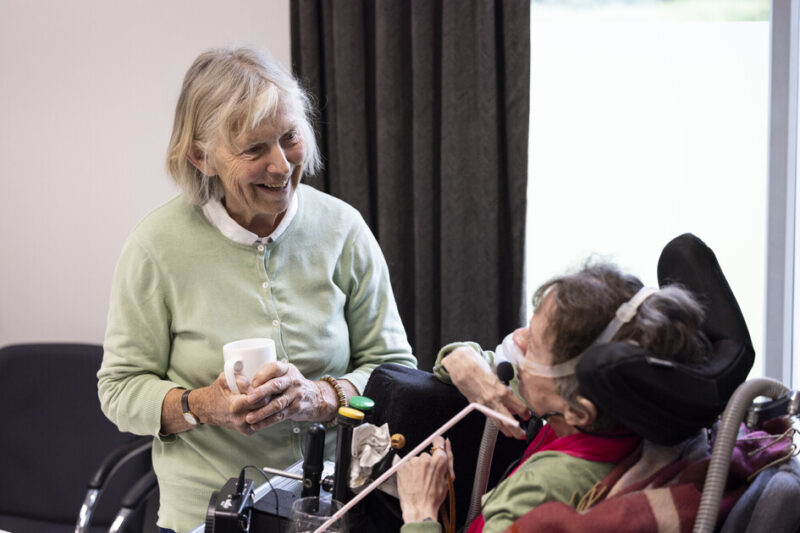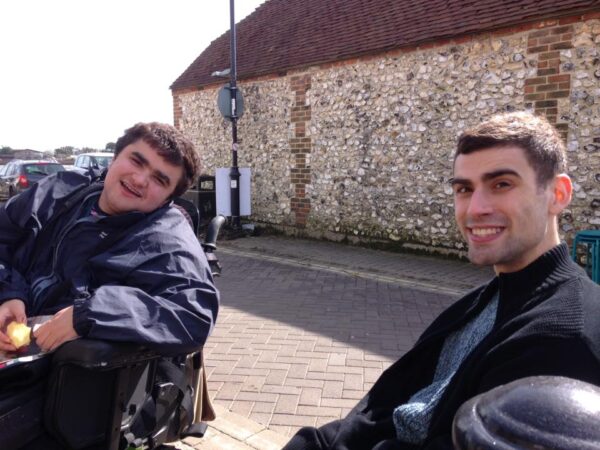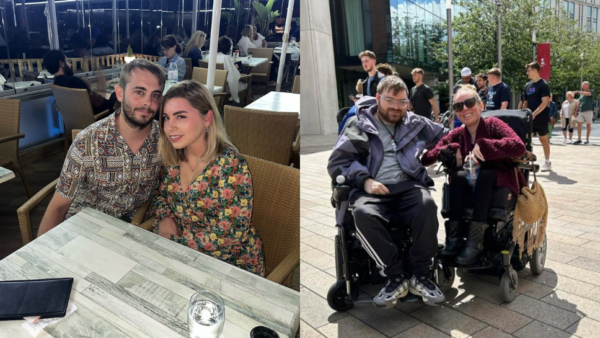Growing up, James was unable to express his sexuality openly. But since coming out at age thirty-two, he’s vocal about LGBTQIA+ inclusivity, sexual health education, and dating with Duchenne.
Duchenne dating and sexuality

I knew I was gay since I was around fourteen, but I spent nearly twenty years hiding in plain sight. It wouldn’t have been acceptable to admit it. When someone who provides your care is loud about hating queer people, coming out isn’t an option.
During my teens and twenties, I thought I would never experience love anyway. That coming out would do more harm than good. I convinced myself I was happy with that. Why would I keep wanting something I couldn’t have? It was toxic, but it was the only way I knew.
For non-disabled people, being queer is difficult enough when one of your parents is homophobic. But some can leave home to live freely. I was trapped. I had nowhere to go, and I was made to think professional care would be awful.
I ended up getting out when I was twenty-seven. I was safe to live how I wanted. But leaving a toxic relationship is only the first step. It took a few more years to build my confidence.
An upsetting experience made positive
In the spring of 2021, I had my most difficult hospital appointment. I was given a choice between a tracheostomy or end-of-life care. I always knew that my time would come, but the suddenness led me downward. But I managed to crawl out of that black hole.
It reminded me that I didn’t have time to hold myself back. Life with Duchenne is short enough. I could no longer bury my need for someone to share my life with. I decided to turn this difficult situation into something positive. I felt urged to work on myself and start living.
It was the push I needed. It became clear that I had to come out.
The first person I came out to was a trusted personal care assistant. A week later I told my family by letter. I was thirty-two, but better late than never! But I quickly learned it wouldn’t be so simple when you live with Duchenne.
Left out by the LGBTQIA+ community
It’s a challenge finding someone when you’re disabled – especially being a gay man. In my opinion, the LGBTQIA+ community isn’t fully inclusive.
We’re excluded from the gay scene by the lack of wheelchair access and information about it. From my research as a wheelchair user, 80% of the LGBTQIA+ friendly nightclubs and bars in Edinburgh don’t have wheelchair access. And finding this information quickly is a challenge.
Lack of awareness
It’s a common myth that disabled people don’t have sexual desires and can’t have sex. We’re not represented in the media enough or accurately.
I think Channel 4’s The Undateables adds to the wrong assumptions. Nobody is automatically ‘undatable’ because of their disability. Disabled people can and do manage to go on dates without non-disabled people acting as matchmakers. It would be more inclusive having disabled people on the First Dates programme.
Sexual health is important to anyone who is sexually active. Yet, disabled people are excluded from sexual health care. When you use a wheelchair and can’t transfer to have any kind of intimate examination, it’s impossible to get checked. I’ve never been in a doctor’s surgery that has a hoist. We must have equal access to health care. We have the same bits as non-disabled people, after all.
At school, I felt like a spectator during sex education because there was no mention of disability. I would zone out during each class because, apart from wearing condoms, none of it was relevant to me. I thought I would never be able to have sex when I was a teenager. After coming out at 32, I realised I had no idea about sex. I had to find my own information about sexuality and sexual health.
Duchenne and dating
Having a relationship and sex life is possible when you live with Duchenne. From my experience, it’s important to be hopeful but prepared for rejection. I prefer to be upfront about my disability from the start. I mention it on my dating profiles. This will likely lead to more rejection, but it’s a good filter for people that won’t date a disabled person.
Life with Duchenne
There’s no denying that living with Duchenne is tough. I’m constantly losing mobility, adapting, and fighting for what I need. But a good life is possible, even if it’s short. I’m naturally creative, so I quickly find ways to adapt. I’ve been privileged enough to be able to do most of what’s important to me.
So far, I’ve had a couple of in-person dates. It doesn’t sound much, but I wouldn’t have done anything like that a year before. It’s signified huge personal and mental growth.
Our ‘Spotlight’ series is shining a light on the experiences of people within the muscle-wasting community. Explore more of our blog post and stories or get in touch to share your story.


